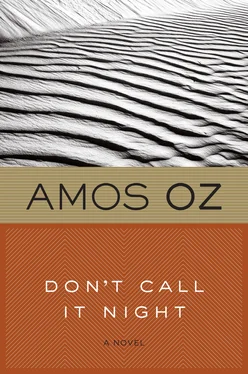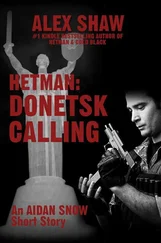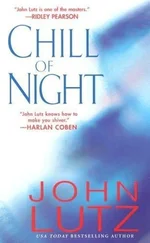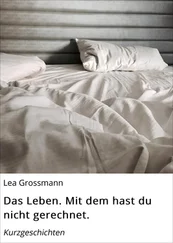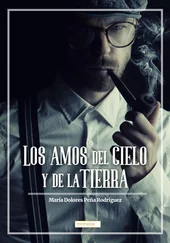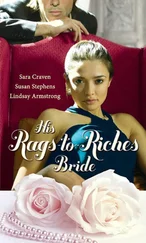Batsheva Dinur, the mayor, a woman of my own age, strong, pink-faced, with short-cropped silvery hair, a solidly built, oddly proportioned figure, sitting deep in this armchair, looked like a range of mountains with extensions piled up in every direction, as though she had more than four limbs. Her large horn-rimmed spectacles had slid down her nose. Her solid red arms looked rough, like old bookbindings. She always reminds me of a plump Dutch grandmother, or an innkeeper's wife ruling with a firm hand all those around her.
When she spotted me, she stopped playing. She shot me a wry look over the top of her spectacles, as though she could see right through me before I had said so much as a word. She said: Look who's come to see us. Come over here, fetch a chair from the veranda and bring it over. Not there. Here.
I took a stool like the one her old mother was sitting on, stiff and unmoving. I remembered to say, Good evening.
Batsheva said: Be quiet, Theo. Let me finish.
She went on playing a tune that I could not identify yet that sounded vaguely familiar and even moving.
After playing for ten minutes she suddenly had enough, stopped, and let out a braying sound, like an impatient mule. She slipped the mouth organ into a pouch formed by the folds of her skirt between her heavy knees.
It won't come right, she said, I keep trying to play it like geometry, to dry the feeling out of it, otherwise it goes all sticky like plum jam, which I hate by the way. You look terrible.
She peered at me for a while, still over the top of her glasses, curiously, thoroughly, without the slightest embarrassment, a redoubtable woman whom no adversary has ever got the better of. And yet at the same time she is generous and vigorous, with an occasional wicked twinkle in her eye, as if someone has just whispered a juicy obscenity in her ear and she is savouring it in her mouth, and putting off swallowing it, deliberately prolonging the pleasure.
I said: Look here, Batsheva. I'm sorry to butt in out of hours. The thing is, I've got a problem I can't really talk to you about at work.
Her old mother said: Here comes that poor Seriozha. He's in love. He's looking for his Anyushka.
Batsheva said: A problem. Yes. So I've heard. Your wife. That clinic of hers.
I pointed out that Noa and I aren't married.
Why ever not? You should get married. Noa's a sweetie.
She winked at me merrily, her broad face lighted up with affectionate, knowing shrewdness.
Give me two minutes to explain.
I know, I know. You've bought Alharizi's ruin and now you're stuck with it. You've come to ask me to meet you halfway. Forget it.
The old woman remarked sadly: Love. They don't eat. They don't drink. Phoo — and the brains go out.
Batsheva said: Ah, thanks for reminding me. I'll put the kettle on in a minute and make us all some tea.
She did not move from her armchair.
I said: There's no need. Don't get up. I've only come for a few minutes.
Batsheva said: Right then. Please, talk. We don't let him get a word in and we keep saying talk. Now you can talk.
Batsheva Dinur's husband was killed in the battle for Jerusalem in 1967. She brought her four children up by herself while working as an electrical engineer specializing in transformers. Nine years ago, not long before we came to Tel Kedar, she put in a successful application to manage the washing-machine factory. Two years ago she was elected Mayor, and since then she has fought valiantly to, as she puts it, clean up the bloody shambles. Her children have grown up and married. She has grandchildren all over the country. Every Saturday evening she goes out with her old mother to stroll up and down the square by the lights. Or else the pair of them sit in the California Cafe for an hour or so, and a queue of favour-seekers lines up at their table. She is an indefatigable, straightforward woman, always armoured with a casing of witty practical gruffness. Her enemies detest her and her friends would go through fire and water for her. The Tough Old Truck, they call her in the town.
Look, I believe that with proper preparation of public opinion and on whatever conditions you lay down for us, a small medical clinic, something pioneering, experimental, with all appropriate supervision arrangements, could be a boon. It would attract researchers. It would act as a useful focus for voluntary communal activities. There would be a favourable press. And in fact it's just the hook you've been looking for to bring us a university extension or the first nucleus of a hospital. Think it over.
The old woman added: In winter the thermometer drops to forty below, the wolf howls at the door of the hut, aaaoooo, like an abandoned baby.
Batsheva said: Drop it, Theo. It'll never happen. But I'll tell you what, there's some iced mint tea in the refrigerator. Why don't you help yourself, and bring us some too. The glasses are in the dryer.
Batsheva. Wait. Try to see it like this. A man who has lost his son turns up here and pledges to give us seventy thousand dollars, with the promise of more to come. He gets together a committee. He's within his rights. A funny committee, admittedly. The committee purchase an abandoned property that was hanging around here like a pain in the backside. They register as a memorial foundation. The people involved show enthusiasm. Dedication. Naturally there are doubts in the town. Some of which are justified. That's perfectly understandable. But with you on our side the doubts will be dispelled.
Who needs it, Theo? For heaven's sake. An opium den. Besides which, he still hasn't repaid you a penny. Do me a favour, bring your chair round to the other side. That's right. Now I can see you without getting the light in my eyes. You really do look terrible.
The old woman intervened: On the stove sweaty peasants with fleas are sleeping in their clothes, and outside the wolf goes aaaoooo. And what of compassion? Has it vanished? Disappeared?
I didn't say a drug clinic.
Ah. Something else? Definitely, why don't you set up a memorial in the form of, let's say, a workshop for desert sculpture? The rocks are on me. For free.
But it's got to be connected with the problems of young people, I said. It's in memory of a dead schoolboy.
And Seriozha shivers all night long. Everybody is asleep and he has none.
Young people. By all means. Computers. All you have to do is persuade your donor. Let's say for instance a centre for young computer wizards. It mustn't be called that, of course. Isn't that right, Mama? Or else what about a hothouse for young researchers on subjects related to high-tech industry? You'd need to get at least another hundred and fifty thousand dollars out of your benefactor for equipment and operating costs, and that's without even thinking about a scholarship fund. If you can come up with some academic patronage then we're talking business. Why not?
That's not what the donor is after.
Well make it so it is, then. Or else get hold of someone else who's lost a child.
I don't think Noa will buy it. Or the donor. It's hard to know.
You take care of it, Theo. Cleverly. Then come back to me. Mama, you've talked enough. And what happened to our iced tea?
Not for me, thanks. I'm off. I'll try to talk to Noa. It won't be easy.
Seriozha will be ill.
Won't you stay a little, Theo? Take it easy? Only don't stop me playing. Just sit quietly, no, why not? You're not a nuisance, is he, Mama? Not a nuisance, is he? On the contrary, you're lovely. Stay.
How about a compromise, Batsheva? Kids with a talent for computing who have got mixed up with drugs?
She didn't answer. She merely puffed out her cheeks, like an elderly baby determined to amuse at all costs, and blew into her mouth organ. She played a tune I remembered from the fifties, "He didn't know her name, but all the same, that pigtail went with him all the way…"
Читать дальше
